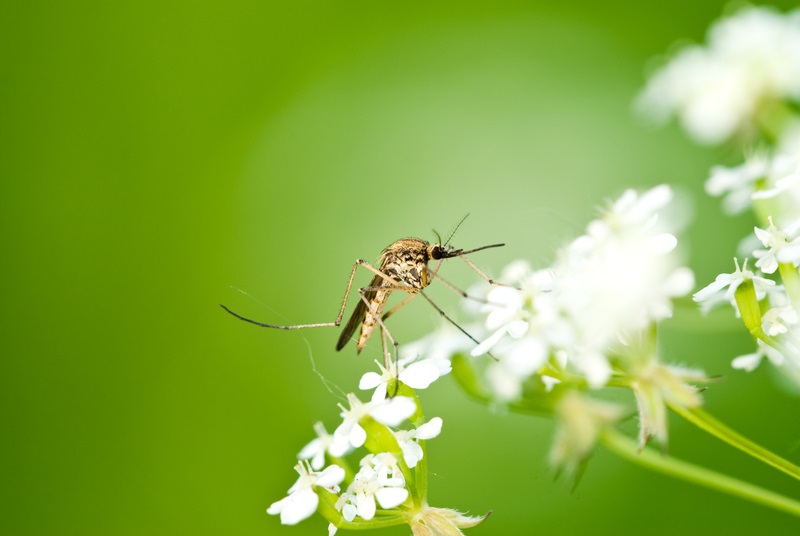By Daniel B. Botkin
Copyright © 2016 Daniel B. Botkin
Reprinted by Permission
While Hillary Clinton and Donald Trump trade insults focusing on their personalities, histories, and abilities, those of us who have long considered the environment an essential modern issue are wondering what attention will be given—what policies, and actions will be implemented to address environmental problems at home and internationally in the next four years. We’re far from alone. It is said that the six or seven major international environmental organizations raise billions of dollars focused on a variety of environmental problems and have millions of members. The popularity of nature is illustrated by a U.S. Fish and Wildlife Service estimate: almost 19 million Americans go on bird-watching trips away from home; 40 million do bird-watching at home, exceeding the 24 million Americans who play tennis.
In addition to climate change, there are other major environmental issues that have raised considerable public concern in recent years. Ask Californians about fresh water. Just over a year ago, on April 1, 2015, California Governor Jerry Brown mandated a statewide 25% decrease in urban water use because of recent droughts, affecting both the poor people in Watts and the movie stars in Beverly Hills. Ask Karen Weaver, mayor of Flint, Michigan, about water quality. Ask Andrew Cuomo, governor of New York State, about possible fracking near the major water source for New York City. Continued freshwater supply throughout the U.S. and in most of the world is a serious long-term problem, with local resources declining.
Forests used to be a major public policy concern, important for commercial wood products, biodiversity, carbon sequestering, and now a growing power plant fuel in the European Union. But today, even a major wildfire in California—usually one of the U.S. summertime major environmental media events— got little if any attention from the candidates. Nor have the pundits that I watch and listen to on TV and radio said much about this, or any other of the major environmental issues.
Add to that the problems with invasive species. Zika, the most recent environmental issue that has attracted any attention, is only one of the recent, highly dangerous and damaging invasive species that have affected agricultural and forest productivity, fisheries, and major national parks. Burmese pythons introduced into the Everglades are just one example of quite a number of invasives that have gotten to that and other national parks. My colleagues tell me that Everglades experts have by and large given up hope that there is any way to lessen the large effects these snakes have on much of the park’s wildlife and on recreational opportunities so important to a peaceful, productive, enjoyable America.
The U.S. Dept. of Agriculture reports an average of 42,647 pest interceptions each year at major U.S. arrival locations by air, ship, truck, and private autos. It is likely that the next president will have to deal with more than one Zika or python equivalent.
Careful decisions about an appropriate variety of energy sources — the best mixture that reduces release of toxic substances, sustains jobs, and does not destroy major public lands — will definitely confront our next president. The choice will have to be not just one source. Clinton has developed a plan for alternative energy—a good thing, but it’s not clear yet if her plan is economically and technically feasible. And if Clinton’s energy plan continues Obama’s emphasis on solar and wind on public lands, it’s unclear what damage her alternative energy plan will do to biodiversity and the beauty of American’s natural areas, a source of profit for the tourist industry. Donald Trump has spoken about fossil fuels, focusing primarily on jobs—also a good thing, but he has not considered the pollution and other environmental negatives of those fuels.
One little discussed energy problem: No action of any significance has been taken in the past eight years to deal with the 70,000 tons of nuclear wastes scattered in more than 300 “temporary” storage facilities around the nation, some close to large urban areas, a dangerous target for terrorists. These add to the long-standing debate over continuing specific nuclear power plants and the role of nuclear power in America’s future.
Many are international issues that will exacerbate other international political problems. While diet experts these days continually push Americans to eat more fish, our national fisheries and the international fishing water where much of America’s fish you see in grocery stores come from are suffering major declines, largely because of failure of some major fishing nations to follow international agreements on fishing methods. Large-scale poaching of African elephants for their ivory, said to sell for $1,000/lb. in China, violates a U.S. and China signed treaty: the Convention on International Trade in Endangered Species. As the new documentary, “Racing Extinction: A Must-See Documentary of 2015, World Premiere at Sundance,” discusses “There have been five mass extinctions in the history of our planet and we may be in the midst of a sixth as a result of our own actions. Some warn that up to half the world’s species could go extinct because of human actions.
Of course, our nation faces many difficult issues, from terrorism to jobs to international relations, to race relations, and it is not surprising that these are getting major, much-needed attention. Environmental issues are in fact involved in major ways in our economy, our quality of life, our international trade and relationships, and cannot be set aside. So, pundits and politicians, it’s not just timely but absolutely necessary to America’s future that we bring back a major focus on these environmental issues.
Daniel B. Botkin, Professor (Emeritus), University of California, Santa Barbara, has published 14 books on environment, has a new non-fiction book in press the fall, Twenty-five Myths that are destroying the Environment, and has just finished a novel, Tsavo, about attempts to save African elephants.

